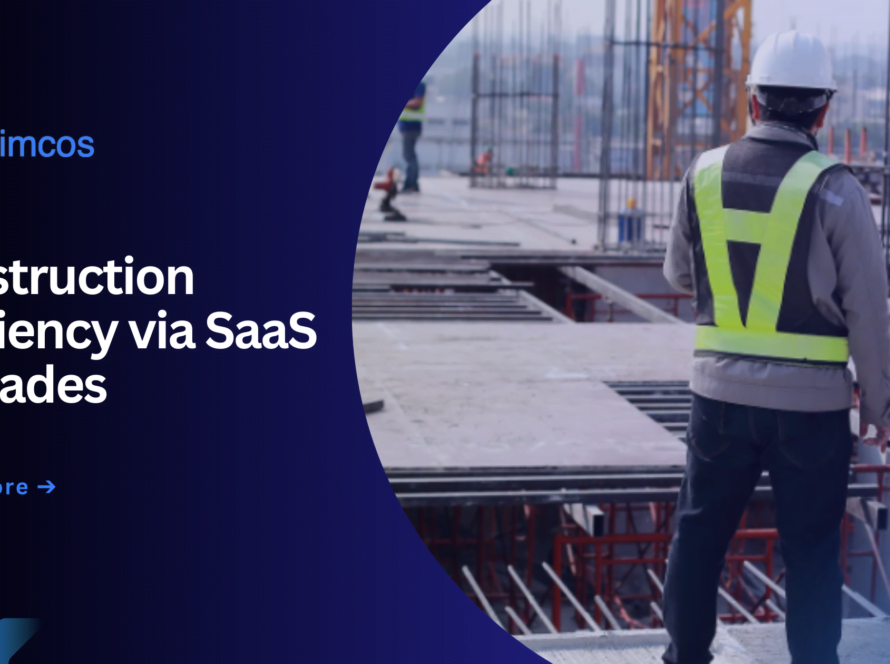Businesses must continuously adapt to latest technologies and latest versions to stay competitive. One of the most effective ways to achieve this is through app modernization, which involves updating and transforming legacy applications to align with current business needs, technological advancements and user expectations. Choosing the right software modernization partner is critical to the success of this transformation. A reliable partner will not only ensure that your applications are updated efficiently but also help you avoid potential pitfalls and maximize the benefits of modernization.
This process includes evaluating the partner’s expertise and experience, technical capabilities, approach to modernization, communication skills, cost and value proposition, security and compliance standards, post-migration support, cultural fit, proven results and the feasibility of a trial engagement. Each of these factors plays a vital role in determining the overall success of your modernization efforts. By carefully considering these elements, businesses make informed decisions that lead to the successful transformation of their legacy systems into robust, efficient and future-ready applications.
Table of Contents
Who is a Software Modernization Partner?
A software modernization partner helps to revamp the applications to align with current business needs, technological advancements and user expectations. They’ll upgrade the technology, improve performance for faster processing and create a user-friendly interface. Security is a major focus, so they’ll ensure your software is protected from cyber threats. By breathing new life into your existing software, a software modernization partner keeps your business agile and competitive in a rapidly evolving digital world.

Choosing a software modernization partner is a important decision that significantly impacts the success of your modernization efforts.
1. Assess Expertise and Experience
The key while choosing a software modernization partner are their skills and how experienced they are! Their experience in your industry means they understand challenges specific to you and the requirements set by other companies similar to yours. Someone who has worked with companies in your space will be better able to offer solutions that are particularly tailored for you. In addition, it is important to evaluate if they have technical proficiency in the latest tech stacks and modernization tools like Cloud Computing, Microservices, DevOps etc. These skills are critical for doing an effective retrofit of legacy systems.
Utilize case studies as well and when it comes to reaching out for references from any provider you are under consideration with; this will give you an idea of what is possible. Knowing this helps in understanding their deliverability and flexibility along the spectrum of project sizes. A strong track record of working with partners in your industry, who have a deep understanding of the modern technologies will help you meet your software modernization goals faster.
2. Evaluate Technical Capabilities
Assessing the technical capabilities of a potential MBSE SW solution partner includes examining how good they are with your existing and target technology stacks. They need to have an expertise in the technologies that you are planning to use so they can team with you accordingly through each stage of transitions. Also, determine their innovation capacity as far as implementing state-of-the-art solutions and being up to date on trending technologies. This speaks to their level of experience with cloud-native development as well as the use microservices and DevOps practices.
But at the same time, they also need to be reviewed for their tools & methodologies regarding project management, development and quality assurance etc. Working with a dealership that is operating off the most recent and up to date technologies helps you achieve more expedient turnaround times as well as higher results. This evaluation will confirm that the partner has technical capability to address your modernization needs as well as provides innovative and sustainable solutions.
3. Understand Their Approach
Making sure that the way a partner is going to modernize would line up with your needs. A solid partner always starts with understanding your workflows as they stand, pinpointing areas of weakness and creating a plan to modernize in an obvious way. Seek a partner that incorporates bespoke solutions based on your exact needs, as opposed to “cookie cutter” programs.
The ability to adjust the requirements during the process is also very important. Because they can be this adaptable, it shows that their consultations align tightly with exactly how your company functions. By really knowing their method, you make sure the partner is ready to provide answers that solve only your issues and develop it with your wishes.
4. Check for Strong Communication Skills
One of the most important qualities a software modernization partner have is highly effective communication. Partners need to be transparent in how they work and communicate with you, ensuring frequent status updates on where a project stands. This transparency is what builds trust, ensuring both are on the same page. In addition to enabling speed through automation, you should also drive a partnership approach as strong working relations between your internal teams and the partner team.
In order to address concerns, a feature as critical as having accessible and concise pathways for members to provide feedback or request resolution procedures is key. Keep all stakeholders informed and set expectations to avoid confusion. Strong communication skills of the partner will ensure a digital modernization experience, offering new opportunities to take advantage of.
5. Evaluate Cost and Value
In the process of choosing a software modernization partner, assessing both cost and value are critical components in making an informed decision. Learn their pricing model to make sure it fits your budget and financial circumstances. Keep in mind that if there is any hidden cost or an additional resource require during the project. Beyond their initial outlay, also take into account the added value they bring to your business in terms of know-how and tech capabilities as well as quality aspects regarding design solutions.
If you find a partner competing against multiple layers of competition that is also able to deliver better results than everyone else and who accepts your budget, it means they have so much value for money. By conducting this evaluation, you are verifying the fact that your partner is not only affordable but also an element of high quality which gives a good input to output ratio in terms or return on asset.
6. Audits of Security and Compliance Rules
Any Software modernization project must prioritize security and compliance. Ask whether the partner has a highly rated security record to secure your data in both pre and post modernization of software. This would involve data encryption, secure coding practices and security audits on a regular basis. Failure to adhere with industry regulations and standards could lead to legal issues, as well.
This includes partnering with the right team who understands regulatory requirements and keep you compliant throughout modernization. It covers knowledge to apply measures under the regulations applicable in different regions such as GDPR, HIPAA or current regulation for selected industry. By reviewing the security and compliance standards, this guarantees that your data is safe and secure in addition to complying with laws.
7. Examine Their Post-Migration Support
Post-migration support is an important aspect of any kind of software modernization initiative. Some partners provide additional support following migration. This involves everything from regular maintenance to the routine updates and troubleshooting needed to keep a modernized system running efficiently. A dependable partner will be there to contend with any problems as they occur, making sure quickly fix the problem and eliminate any downtime or disturbance.
Also the training for your internal teams to administrate and develop around your new system. This is meant to ensure your staff effectively operate and troubleshoot the modernized applications. Not to mention taking a look at how long the partner will provide support after you have migrated ensures that you receive the help necessary to keep your systems healthy and team well-equipped for any further challenges.
8. Seek Cultural Fit
The cultural compatibility between your organization and then the next team that could be a partner to modernize your existing system would have an immense effect on how successful this project operates. The company culture of your partner should match the values, work ethic and business practices you use in your organization. This alignment leads to efficient collaboration throughout the entire project.
Find a partner — not an integrator or specialist interested in doing one thing for you, but rather someone who wants to form long-term relationship with your company. And the fact that they are willing to support you past this initial modernization reside change tells a great deal about their long term view on your success. A positive working relationship with a great cultural fit breeds collaboration and elevates the chances of you meeting your software modernization goals.
9. Check for Proven Results
Analyzing the history of a platform is critical for knowing how trustworthy they are and their performance. Then, find a partner who has experience delivering successful software modernization projects. Check out their case studies and copywriting client testimonials to make sure they always pull through with bringing you the good stuff. Testimonials also show you the reliability, communication methods and how they solve problems.
Another key takeaway from a successful partnership is that having an experienced and reliable partner demonstrates the capability to handle complicated projects while delivering on their commitments. This ensures variety and, at the same time, aids you in identifying a partner that has delivered results before indicating they will be able to address your modernization requirements effectively.
10. Plan for a Trial Engagement
This is a simple way to test out the services of any potential software modernization partner and do so in an easily digestible portion. A trial engagement help you evaluate how well they perform in practice and what it is like working with them, before making the decision to entrust a larger project on their shoulders. You also want to gauge their problem-solving approach, communication and technical expertise during the pilot.
This assessment is designed to catch any warning signs early and see if the software modernization partner aligns with your requirements. An initial trial engagement that goes well to do wonders in instilling confidence in the partner and paving way for a larger, successful software modernization project. A trial engagement plan offers the subtle hint that it might be better to choose with all of your senses versus just a single one.
These steps ensure that you should have a software modernization partner who will help you reach your goal quickly and without any glitches so as to guarantee the smooth upgrade of software codes to modern, stable and more scalable enterprise applications.

Having the right software modernization partner is a strategic decision that largely determine how successful any of your efforts at modernizing are. Evaluating the partner’s technical skills, technological expertise, approach flexibility and scalability, excellent communication standards setting a budget-friendly price for migration services (assuming you are looking start-up with limited resources), commitment structure once support provided is key. These all ensure that your Legacy applications are updated in a way which is cost-effective and efficient leaving you with minimum risks but maximum benefits.
The right partner will not only solve the technical and operational problems associated with modernization, but it would also enable your business to innovate, become more agile and provide new products, services or features that differentiate you from a competition. Through this in-depth assessment process, enterprises establish partnerships and make software modernization that is expected to deliver enhanced performance; scalability; security, as well as user satisfaction. By achieving this strategic initiative an organisation is properly placed to sustain business in the digital era.
Himcos provides Business Software Modernization services. Our team isn’t just skilled, you get the best minds tackling your modernization project, ensuring exceptional quality and results. Our experts help improve performance, reduce costs, enhance security and foster innovation providing our clients with scalable, secure and high performing applications.



